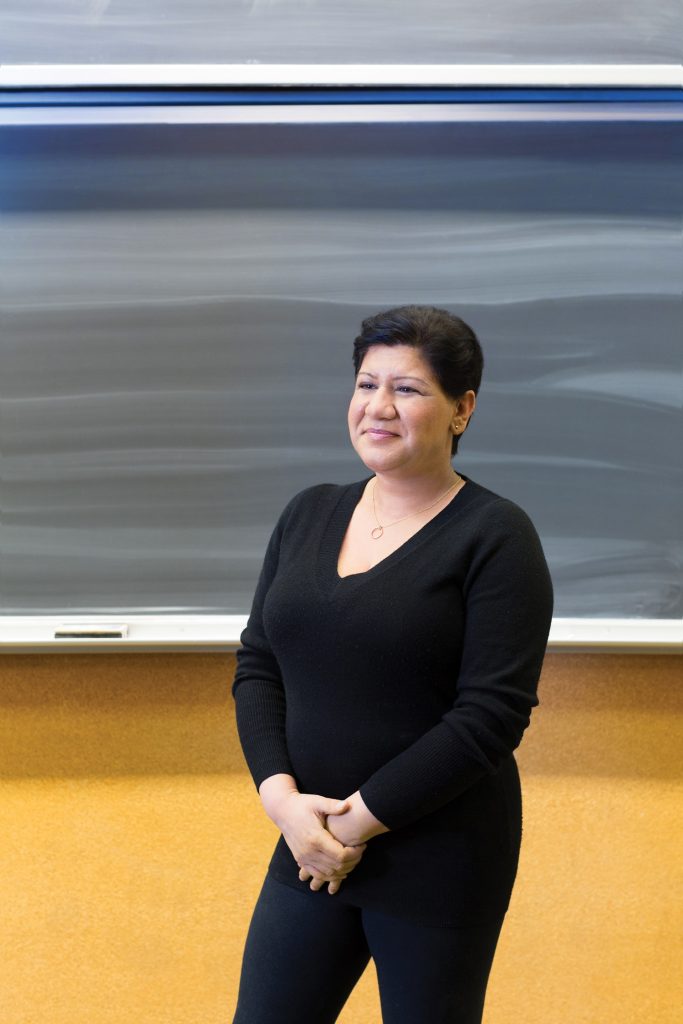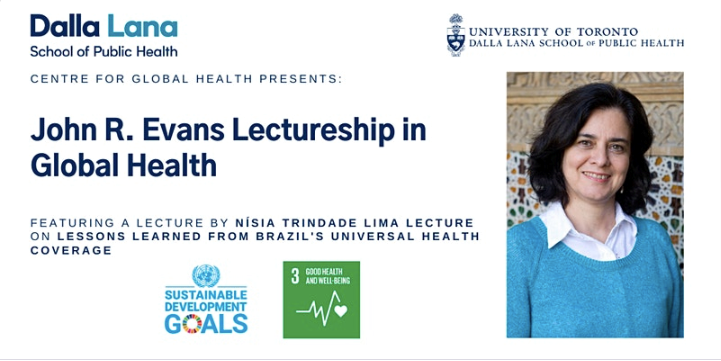Arjumand Siddiqi appointed Epidemiology Division Head
 March 20/2020
March 20/2020
Arjumand Siddiqi was appointed Head of the Division of Epidemiology in the Graduate Department of Public Health Sciences at the Dalla Lana School of Public Health on March 20, 2020. Siddiqi is an Associate Professor of Epidemiology and Canada Research Chair in Population Health Equity. She also holds appointments in...
‘The window for action is right now’: U of T epidemiologist on the effectiveness of social distancing
 March 18/2020
March 18/2020
As the new coronavirus continues to spread, authorities around the world are encouraging people to limit their contact with others in an effort to stem the tide. On Tuesday, for example, Ontario declared a state of emergency and announced 11 new cases of COVID-19, bringing the provincial total to 180. Alberta also declared...
DLSPH appoints Dionne Gesink as Acting Associate Dean, Academic Affairs
 March 10/2020
March 10/2020
Dionne Gesink was appointed Acting Associate Dean of Academic Affairs at the Dalla Lana School of Public Health on March 10, 2020. Gesink is a Professor of Epidemiology whose work focuses on generating new knowledge on restoring healthy relationships with a focus on the social epidemiology of sexual and reproductive...
With new federal funding, U of T researchers aid global effort to understand and control COVID-19
 March 06/2020
March 06/2020
by Geoffrey Vendeville The University of Toronto and affiliated institutions will receive almost $6 million for research projects related to COVID-19, with another $2.7 million to campus-based researchers, while $3.13 million will go to U of T researchers at affiliated hospitals – part of a $27 million federal investment in research related to the...
DLSPH welcomes global health powerhouse Nísia Trindade Lima to launch new Centre for Global Health
 February 28/2020
February 28/2020
Global health is public health. With tremendous breadth and expertise in a diverse set of global health issues, DLSPH faculty, alumni and collaborators have cultivated strong partnerships with leading global institutions and public health leaders. As the Office of Global Public Health Education and Training transitions into DLSPH’s new Centre...
DLSPH’s STAGE Celebrates Anniversary and Finds New Home in Statistical and Data Science Research Hub
 February 19/2020
February 19/2020
by: CANSSI Ontario and DLSPH DLSPH’s Strategic Training for Advanced Genetic Epidemiology (STAGE) program celebrates its eleventh anniversary this year. It officially joined the Canadian Statistical Sciences Institute (CANSSI) Ontario Regional Centre, housed in an extra-departmental unit in the Faculty of Arts and Science, last November. “The partnership with CANSSI Ontario is...
DLSPH welcomes Ophelia Michaelides as Manager of the Centre for Global Health
 February 10/2020
February 10/2020
Ophelia Michaelides joined the Dalla Lana School of Public Health as Manager of the new School-wide Centre for Global Health on January 27, 2020. Ophelia is a public health professional with experience in global health, health system strengthening, family medicine and primary health care. Through her previous management positions at...
U of T Researchers Find That Coronavirus Has Not Been Controlled as Hoped
 February 07/2020
February 07/2020
by Françoise Makanda, Communications Officer at DLSPH The coronavirus epidemic started earlier and the disease transmission has not yet been controlled in China, a new U of T disease-transmission model suggests. “You can’t get up to that level of cases if the epidemic started in December even if you pushed...
Novel Technique Finds Undetected Tuberculosis Super-Spreader in Canada
February 04/2020by Françoise Makanda, Communications Officer at DLSPH A U of T-led research team used deep sequencing to find a previously undetected tuberculosis super-spreader in an outbreak in Nunavik, Quebec. It is the first time the technique is used in tuberculosis transmission in Canada. The researcher’s findings were published today in...
More studies needed on use of acetaminophen prior to pregnancy, U of T researchers say
January 27/2020by Françoise Makanda, Communications Officer at DLSPH Using the popular painkiller acetaminophen just before pregnancy could lead to babies born smaller than usual for their gestational age or with a lower birth weight, a new study by University of Toronto researchers suggests. The researchers’ findings, published recently in the journal Pediatric Research, could...